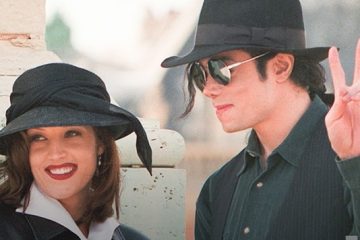Ahmed Muztaba Zamal shares his experiences at Cannes
 Noted film society activist Ahmed Muztaba Zamal is the president of Rainbow Film Society. Zamal, the founder and festival director of the Dhaka International Film Festival, was also the founder of Bangladesh Chapter of FIPRESCI in 1994 and was elected secretary general of International Film Critics Association of Bangladesh-IFCAB in the same year. He had the opportunity of participating as part of international, FIPRESCI and NETPAC jury in many important film festivals like Cannes, Berlinale, Venice and others. He runs a quarterly cine-magazine named Celluloid.
Noted film society activist Ahmed Muztaba Zamal is the president of Rainbow Film Society. Zamal, the founder and festival director of the Dhaka International Film Festival, was also the founder of Bangladesh Chapter of FIPRESCI in 1994 and was elected secretary general of International Film Critics Association of Bangladesh-IFCAB in the same year. He had the opportunity of participating as part of international, FIPRESCI and NETPAC jury in many important film festivals like Cannes, Berlinale, Venice and others. He runs a quarterly cine-magazine named Celluloid.
This is the sixth time that Ahmed Muztaba Zamal attended the 66th edition of Cannes Film Festival held last month in France. In an interview with New Age, Zamal shared his observations on the current trend of the festival.
‘The stories of achievements of the Asian films in the recent editions of the Cannes have given global prominence to what insiders say is a bold era in Asian filmmaking,’ said Ahmed Muztaba Zamal.
‘Directors from China, Japan, Singapore and Cambodia got awards in the world’s most prestigious movie bash. Iranian and South Korean filmmakers also drew attention,’ he added.
Jia Zhangke won the Best Screenplay award for the Chinese film A Touch of Sin, which he also directed.
Cambodian Rithy Panh’s documentary L’Image Manquante won the top award in the Un Certain Regard category, which showcases emerging directors. Japanese director Hirokazu Koreeda won Jury Prize, the third-ranked award, for Like Father Like Son. Singapore’s Anthony Chen won the Camera d’Or for the film Ilo Ilo.
‘The Chinese also participated in jury. Two Indian actresses were jury members: Vidya Balan was one of the jury members of the main completion headed by Steven Spielberg. Nandita Das was the jury member of the short film category,’ Zamal said.
According to Zamal, there was a controversy regarding the selection of the best film. ‘Like the previous years, controversy aroused when Blue is the Warmest Colour, featuring a lesbian love between two French women, was selected as the best film,’ Zamal shared.
Zamal further observes that film festivals are the place for encounters of the independent filmmakers, technical persons, actors, critics, booking agents, distributors and exhibitors from across the country. ‘I could select 70 films from the Cannes for Dhaka International Film Festival,’ he said.
‘In fact, the film festivals these days have turned to be the alternative means for distribution and exhibition of the films made by the indie makers. Film trade experts observe that millions of dollars in film trade is done during the 10 to 15 days of the festival,’ Zamal added.
According to Zamal, the Indians are reaping benefits from the festival despite the fact that there was no participation of any Indian film in the competitions. ‘There was a huge Indian film pavilion at Marche du Fim, the business centre of the festival as the country celebrated centennial of its film industry,’ he adds.
Ahmed Muztaba Zamal, however, regrets seeing no participation in Cannes from Bangladesh. ‘Only in 2002, Tareque and Catherine Masud’s Matir Moina was screened at the Directors’ Fortnight Section, an independent section held in parallel to the Cannes Film Festival, and won the FIPRESPI award in 2002,’ he laments.
-With New Age input




















